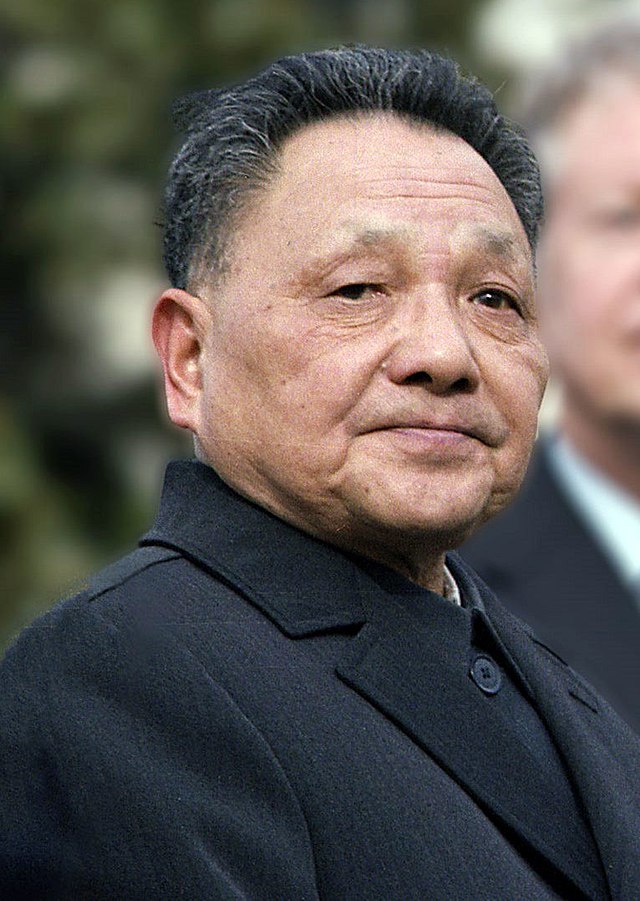Content deleted Content added
Line 110: After the founding of the PRC in October 1949, Deng held several key regional roles, eventually rising to a central position in the [[State Council of the People's Republic of China|State Council]] during the 1950s. As [[Vice Premier of China]] and [[Secretary-General of the Chinese Communist Party]] under Mao Zedong, Deng presided over economic reconstruction efforts. Deng played a significant role in the [[Anti-Rightist Campaign]], which persecuted intellectuals and critics of the CCP. The campaign led to the persecution of an estimated 550,000 people, including writers and political activists, and is viewed as a key event in solidifying his support for Mao's hardline policies at the time.<ref>{{Cite web |date=May 2006 |title=The Anti-Rightist Campaign of 1957 |url=https://www.cia.gov/readingroom/docs/CIA-RDP88-01350R000200180001-9.pdf |archive-url=https://web.archive.org/web/20190508043643/https://www.cia.gov/readingroom/docs/CIA-RDP88-01350R000200180001-9.pdf |archive-date=8 May 2019}}</ref> He fell out of favor during the [[Cultural Revolution]] due to his pragmatic, market-oriented policies. He was twice purged by Mao, but after Mao's death, Deng emerged as the paramount leader by outmaneuvering his rivals. Upon coming to power, Deng began a massive overhaul of China's infrastructure and political system. Due to the institutional disorder and political turmoil from the later [[History of the People's Republic of China (1949–1976)|Mao-era]], he and his allies launched the ''[[Boluan Fanzheng]]'' program which sought to restore order During the course of his leadership, Deng was named the [[Time Person of the Year|''Time'' Person of the Year]] for 1978 and 1985.<ref>{{Cite magazine |date=1 January 1979 |title=Man of the Year: Teng Hsiao-p'ing: Visions of a New China |url=http://content.time.com/time/covers/0,16641,19790101,00.html |url-status=live |archive-url=https://web.archive.org/web/20210419041030/http://content.time.com/time/covers/0,16641,19790101,00.html |archive-date=19 April 2021 |access-date=19 April 2021 |magazine=[[Time (magazine)|Time]]}}</ref><ref>{{Cite magazine |date=6 January 1986 |title=Man of the Year: Deng Xiaoping |url=http://content.time.com/time/covers/0,16641,19860106,00.html |url-status=live |archive-url=https://web.archive.org/web/20191209202013/http://content.time.com/time/covers/0,16641,19860106,00.html |archive-date=9 December 2019 |access-date=19 April 2021 |magazine=Time}}</ref> Despite his contributions to China's modernization, Deng's legacy is also marked by controversy. He ordered the military crackdown on the [[1989 Tiananmen Square protests]], which ended his political reforms and remains a subject of global criticism.<ref>{{cite web |last=Wu |first=Wei |date=2015-06-04 |title=Why China's Political Reforms Failed |url=https://thediplomat.com/2015/06/why-chinas-political-reforms-failed/ |url-status=live |archive-url=https://web.archive.org/web/20230413104706/https://thediplomat.com/2015/06/why-chinas-political-reforms-failed/ |archive-date=2023-04-13 |access-date=2020-05-03 |website=[[The Diplomat]]}}</ref> The [[one-child policy]] introduced in Deng's era also drew criticism. Nonetheless, his policies laid the foundation for China's emergence as a major global power.<ref>{{Cite news |last=Denmark |first=Abraham |title=40 years ago, Deng Xiaoping changed China — and the world |newspaper=[[The Washington Post]] |url=https://www.washingtonpost.com/news/monkey-cage/wp/2018/12/19/40-years-ago-deng-xiaoping-changed-china-and-the-world/ |url-status=live |access-date=19 April 2021 |archive-url=https://web.archive.org/web/20190508043643/https://www.washingtonpost.com/news/monkey-cage/wp/2018/12/19/40-years-ago-deng-xiaoping-changed-china-and-the-world/ |archive-date=8 May 2019}}</ref> | |||
 Article Images
Article Images